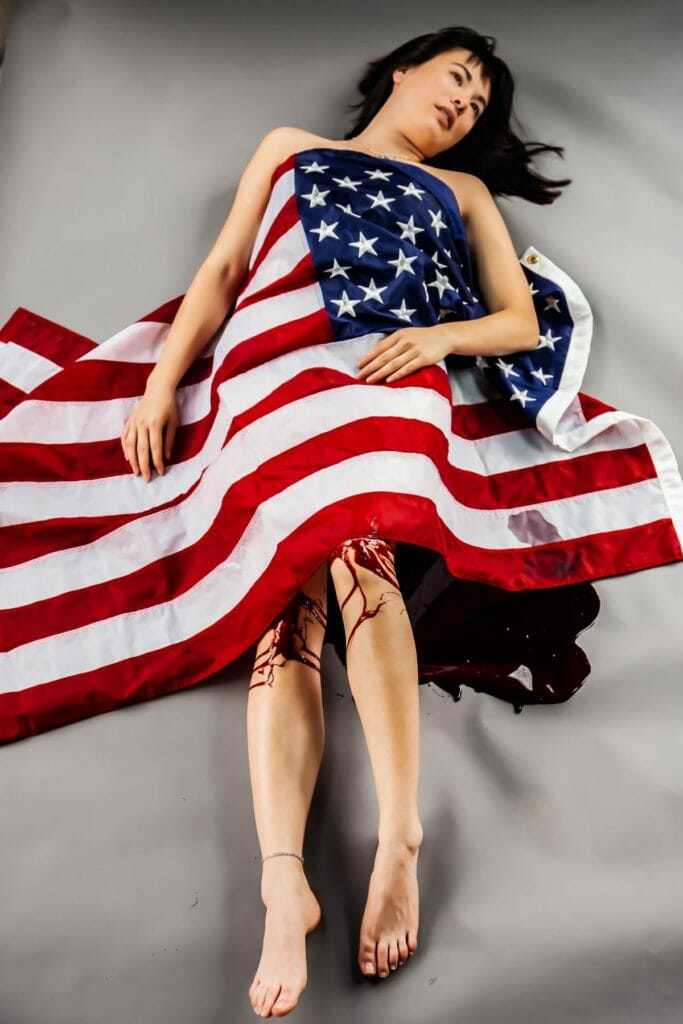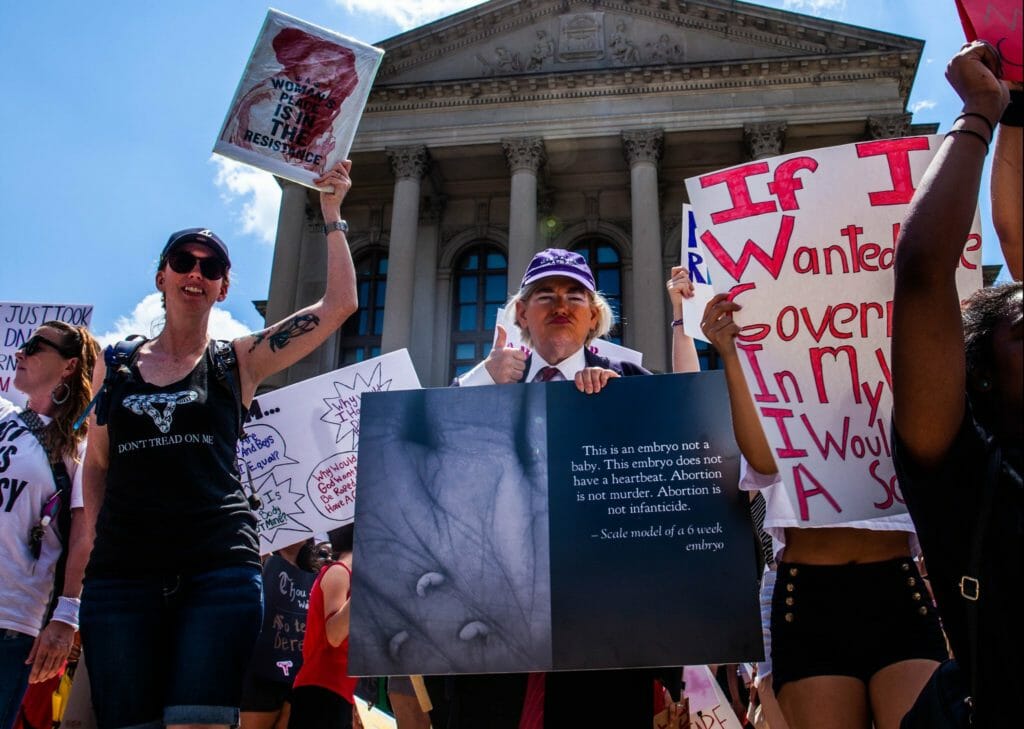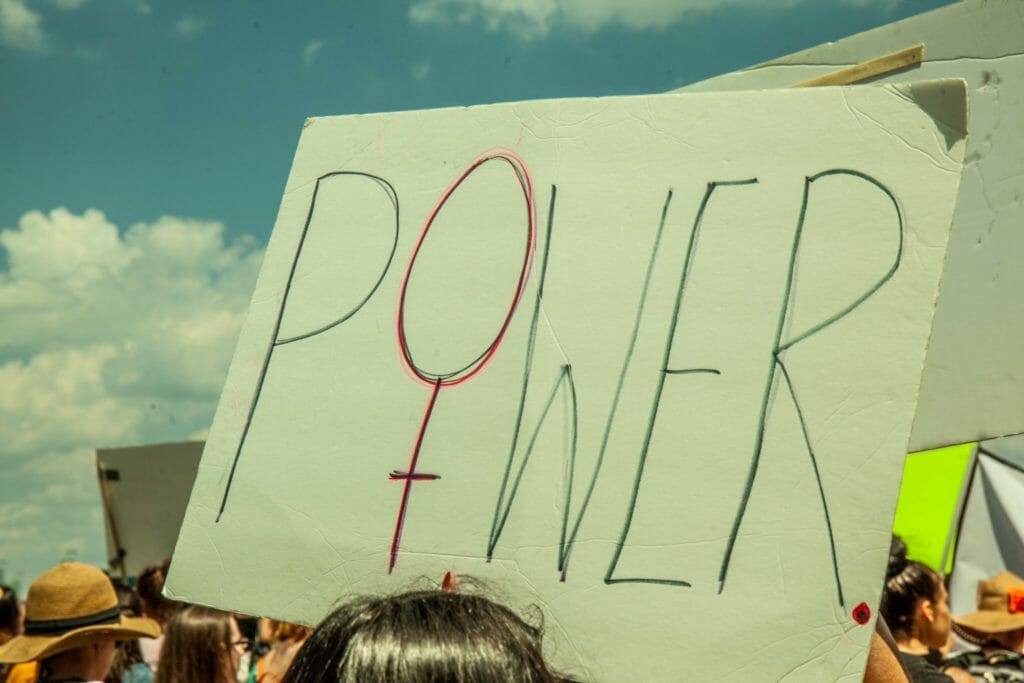ATLANTA — It is not uncommon to drive in Atlanta and see Black youths selling water at any major intersection. From Old Fourth Ward to the West End and all the way up to Buckhead, these “water boys” have become a mainstay to the culture of this city during notoriously hot summers. The genius of their business strategy can’t be denied: a 32-count case of water from Kroger can go as low as $3.49, and selling each individual bottle for a dollar yields an 89% net profit margin. Unfortunately, Mayor Keisha Lance Bottoms and Atlanta city officials have decided to put a crackdown on these kids, and they have decided to use the Atlanta Police Department to do it — all while economic pressure from the COVID-19 pandemic and tensions between citizens and the police continue to rise.
Atlanta youth water sales have become a hot topic in recent weeks. Incidents such as a driver being shot in an alleged dispute with a group of water sellers have led to some Atlanta residents demanding that the sellers be taken off the streets. On July 25, 2020, an announcement from the Mayor’s Office proclaimed these water sales have “put the safety of youth and motorists at risk.” The city’s formalized strategy to what it deems an issue has not been announced at the time of this publication, but it appears there will be a two-pronged approach. Redirecting Black kids to programs to “fuel their entrepreneurial spirit” is one part of the solution while the use of the APD to keep kids off the street is another. The latter solution ends up being the most concerning given the behavior of APD towards young Black kids selling water.
What we are seeing with these city initiatives is an encapsulation of the issues at large that have come forward in the wake of the George Floyd uprisings, as well as a symptomatic treatment of these issues by the ruling class.
Wealth divide and race have been symbiotic in Atlanta since the turn of the 20th century. The city’s income gap can be seen when one looks past the whitewashed retelling of the history of the civil rights movement. The city still has its scars of segregation when streets like Monroe become Boulevard going over Ponce, and it is still dealing with the effects of white flight, blockbusting, and now, gentrification. As it stands, Atlanta has become one of the capitals of income inequality in the United States. According to Data USA, nearly one in four Atlanta residents live under the federal poverty line, 74% of approximately 97,600 Atlanta residents living in poverty are Black, and as of 2017, the city has a poverty rate that is 9.3% higher than the national average. Every day, Atlanta becomes a city of haves and have nots, despite the One Atlanta initiative that is being pushed by city leadership. Unfortunately, the city’s Black populations have been the ones that bear the brunt of these economic pressures.
The ingenuity to sell something as simple as a bottle of water for a near 90% profit in order to help pay the bills or to just put money in their own pocket should be rooted for, especially in the middle of the economic crisis caused by the COVID-19 pandemic. The fact this is occurring during the ongoing crisis makes the response with regards to street water sellers from city legislators and leaders all the more disturbing. A Fox 5 Atlanta article that featured a photo of a young water seller handcuffed by the APD sitting on his empty cooler reported that Councilmember Marci Overstreet called upon the mayor to reign in “waterboys” back in late May of this year, citing complaints about trash being left behind as a major issue. The mayor responded saying a few spoil it for many, and that she doesn’t want to see any of the young sellers arrested due to a lack of permit.
Essentially, Mayor Bottoms has decided waterboys have different sets of standards with regards to how some act out compared to her police department. While the assaults of Messiah Young and and Taniyah Pilgrim or the murder of Rayshard Brooks weren’t enough to lessen Mayor Bottoms’ support of APD officers, a handful of incidents amongst the “water boys” are apparently enough for her to shut down the entire operation. While she states she has no desire to have these kids arrested due to city code violations, the path to avoid criminalization for these kids seems unavoidable.
The plan to use work programs to address unpermitted curb water sales by Black kids seems ghoulish and misguided. On paper, a program like Mayor Bottoms’ Atlanta Youth Engagement Initiative, or AYE!, can come off as positive. The official press release states that AYE! is “an innovative collaboration engaging young people through employment opportunities, professional skills development, and overall health and wellness improvement in the City of Atlanta.” There is no official website for the program initiative.
Professional development can certainly be beneficial to youths for their future, but initiatives like AYE! should be met with scrutiny when it comes to how it would benefit Black youth. The same administration that has cited economic uncertainty from COVID-19 as a reason why it couldn’t trim its police budget is now ordering a youth work program initiative.
We have to ask, how is this going to be funded? Can we expect a skills training program that is well intentioned to do the work regarding things like job placements if it is underfunded and under-resourced since the budget for the city is apparently so tight? Would private interests and industry leaders be the ones footing the bill, and if so, how much influence will they have on how these programs will be run, and does that influence end up being problematic?
If the alternative in these work training programs doesn’t work due to a lack of resources — since we are assuming the Mayor is acting in good faith when she says we can’t cut the APD budget due to economic uncertainty — the ultimate outcome is that Black youths will be forced to go back to what they were doing originally. However, the activity has now been criminalized as the “APD is dedicating an increased response to areas of heightened concern and will not allow dangerous activity of any kind – including running out in the street.” Atlanta has chosen to increase the use of its police force for problems that do not require cops, in spite of the protests that have occured for months demanding cities to decrease the presence of their police departments.
No matter how well intentioned Mayor Bottoms and her administration are, they are treading a dangerous path that could perpetuate systemic problems in regards to the criminalization of Black and poor people that have been at the forefront for city activists and the movement for Black lives. This potential perpetuation of criminalization when it comes to Black kids becomes even more alarming when we consider Gov. Brian Kemp’s new anti-gang activity bill, HB 994, which is currently sitting in the House. The proposed bill increases “the number of crimes for which juveniles between the ages of 13 and 17 would be charged as adults.”
It is known that there is a link to poverty and violent crime, and city leadership has effectively taken away a seemingly harmless avenue of selling water and snacks. With these activities being criminalized, crime becomes more inviting when parents can’t pay the bills and these families can’t afford to eat. Again, the city is treading a dangerous path that could inevitably sell these kids out to the prison industrial complex.
While city council and the Mayor’s office seem very hung up on the fact that these kids are walking into the street, it feels like the true issue is being missed. Children walking in the middle of a busy intersection selling bottles of water isn’t the safest thing in the world, and there have been isolated incidents of violence with these kids over the past few months. But this is also an attack on Black youths creating their own jobs in the face of an unfair economic playing field which existed long before the hardships presented by the coronavirus pandemic. Can we really call this approach to the “water boys” a service to the community and enriching the lives of the Black youth in Atlanta when the police are being sent to disrupt kids selling water in order to satisfy those who hold power over capital and resources, with an end goal of cleaning up and gentrifying the neighborhoods these kids operate in?
There is no benefit for the ruling class and elites of this city to have these kids out there selling water. They’re not paying business taxes, they’re described as violent by local news outlets, and they’re complained about in public safety hearings by people who live in Buckhead. Ultimately, the Bottoms administration’s solution of vague work programs in the middle of a pandemic that has millions of adults in Georgia unemployed while also using the police to antagonize Black kids is tone deaf and reprehensible. The solution to redirect young kids to work and wedging the police into the situation feels like it isn’t even addressing the issue at hand. There will still be a growing income chasm that exists in the city and communities will still be economically deprived.
It is unknown at this time what strategies the Advisory Council recommended to the Mayor on July 31. What is understood is that a lot of these kids are out on the street hustling waters because most of them come from resource deprived communities. At this point, city leadership has sided with the ruling class that holds capital.
When they propose job placement programs when thousands of Atlanta residents are unemployed, while simultaneously wedging the police into what it deems as a societal problem when the growing demand is for police defundment, they have more or less said that austerity is the only means to keep communities safe. The concern that these initiatives and strategies won’t be enough is valid given the city’s comments regarding a lack of revenue, coupled with its reluctance to redistribute any of APD’s $218 million budget. In the middle of it is the Black communities, particularly Black youths, who will still have to live in economic conditions that show no sign of improvement.
If we are to truly say Black lives matter, then we as a community need to stand in solidarity with the “water boys” and ensure they receive the resources they deserve.




